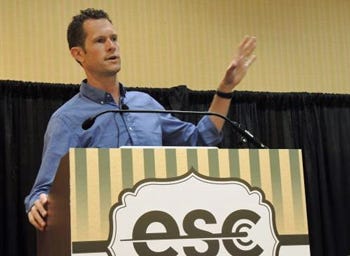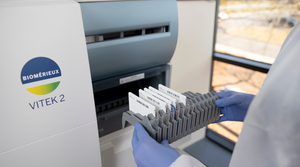Why Wearables Aren't Living Up to the Hype
July 21, 2015
Wearables aren't doing what they need to, but there's a way forward, says an entrepreneur in the space.
|
Penders also told ESC attendees to embrace regulation to a medtech-level stamp of approval. |
Qmed Staff
Today's wearables still provide "limited information and limited accuracy," Julien Penders, co-founder and chief operating officer of pregnancy tracking startup Bloom Technologies (San Francisco), said Tuesday at the Embedded Systems Conference in San Jose.
One recent review of wearable devices found a factor of eight difference between two of them, said Penders, whose talk was covered in Qmed's fellow UBM Canon media outlet EE|Times.
Optical photoplethysmogram sensors on smart watches are highly accurate, but only under rest and moderate motion. Plus, the batteries only last a day. Meanwhile, "bio-impedance sensors use as much as two orders of magnitude less power but generate more artifacts and thus less reliability," Penders said. And good luck when it comes to accurately tracking calories burned.
"As a consequence wearables fail to engage people," Penders said. "They stop using devices in a couple months because they give you information you already know--I know how active I am."
Penders suspects the way forward is to "to address real problems...and put accurate information, medical-grade information in consumers' hands."
Read the full EE|Times story here.
Refresh your medical device industry knowledge at MEDevice San Diego, September 1-2, 2015. |
Chris Newmarker is senior editor of Qmed and MPMN. Follow him on Twitter at @newmarker.
Like what you're reading? Subscribe to our daily e-newsletter.
About the Author(s)
You May Also Like


